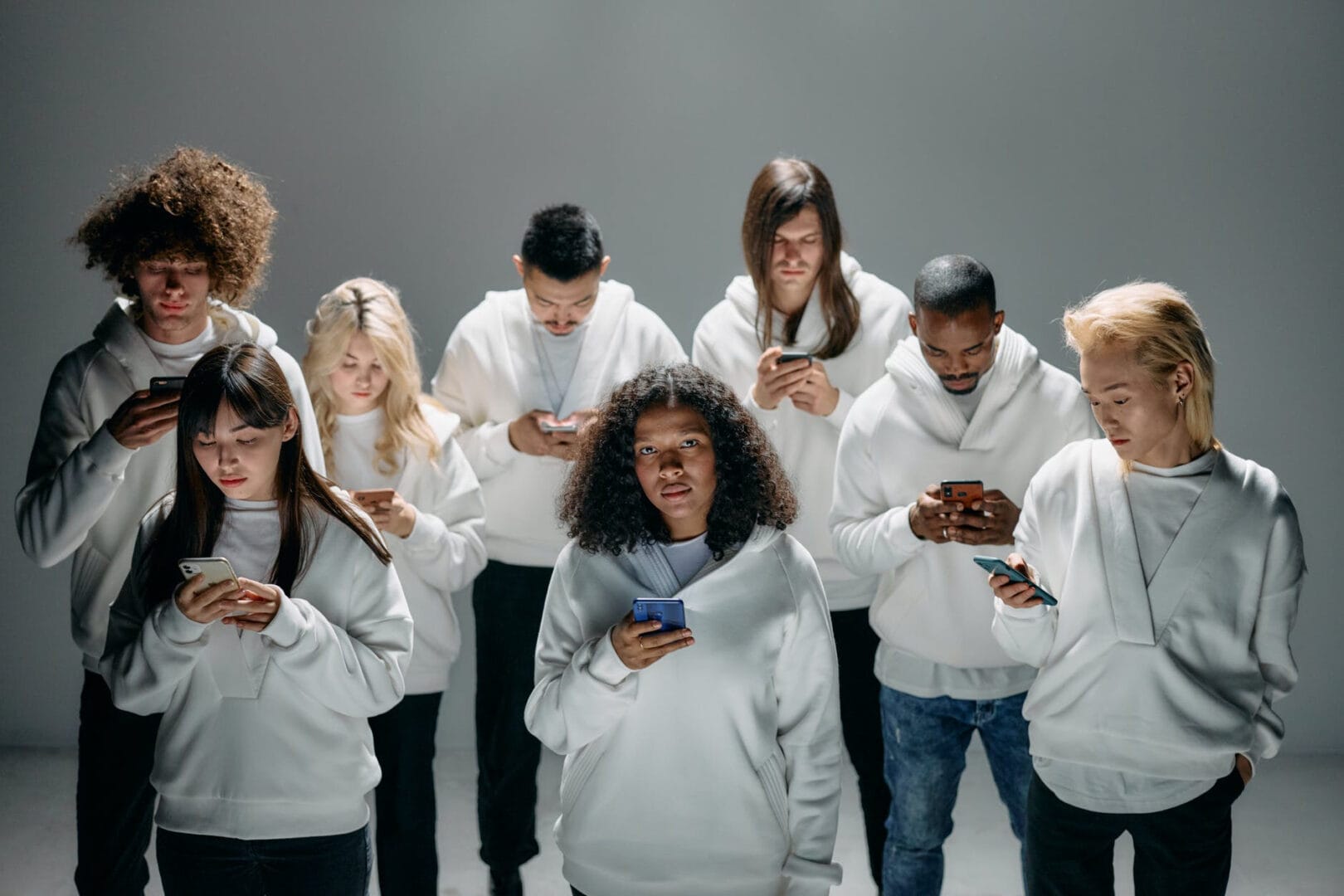The secrets to happiness aren't as complicated as we tend to make it, yet it…
Our reliance on technology can lead to addiction, plus other negative effects of technology. Here’s why and what we should do.
Technology reliance is part of the 10 great modern dilemmas of our time series.
Technology has helped make our lives easier. It’s made us comfortable, given us a wealth of information, and allowed us to connect instantly the world over, but has it really helped us grow as people, or are we actually losing our human touch and becoming more robotic and routined the more technology organizes our lives for us? What are the negative effects of technology on humanity?
We already seem to take wonderful innovations for granted, expecting the latest gadgets that would’ve been just a pipe dream a few decades earlier.
The more we have become expecting of better and better technology, the more we forget the initial point of technology in the first place.
It was meant to help improve our lives and eliminate tedious tasks, it wasn’t meant to take over our minds though and lead us into a void of thinking for ourselves, and yet we find so many of us today busier than ever as glorified data processors sitting at desks (or couches) the world over transfixed on the black mirror, and sometimes distant from the real world, as we consume more and more of what it feeds us.
We rely on algorithms to tell us what is relevant and what is not rather than make up our own minds on it. We find ourselves at the mercy of Google in our small businesses or seek to ‘follow the rules’ to become an authority figure who can then, finally, ironically, be listened to.
This article probably won’t even make it into the eyes of many people due to the nature of what people expect ‘trending’ copy to be like, which is just writing for the trends that the likes of Google can easily program us into.
There’s something fundamentally wrong with this logic though. It puts data and robots first, and humans second.
Technology Is Programmed To Warp Our Minds

As one of the 10 Greatest Modern Dilemmas Of Our Time we know technology reliance is a problem which is taking us away from our capacity to tackle our biggest global challenges together, as addiction to technology can stifle our minds and affect our potential to add value to the world, as humans.
We are losing the human touch the more technology entices is into fancy gadgets and tech-led lives with ‘smart’ AI algorithms.
We might not even realize the impact it directly has on our daily lives as we often wake up in a technology-led trance instantly seeking our phones for our first dose of dopamine for the day, but the impact is there, and it’s powerful.
So much so that we can see people lose their own thoughts and become ingrained and influenced to the primed suggested content that then comes their way, subconsciously delving deeper into an ingrained bias they are unaware of.
It’s no wonder unconscious bias training fails to work, as each and every day people are led towards their comfort-led bubble of reinforced information rather than challenged to really think differently and change for the better.
It’s easier to fall back into our comfortable routine environments using technology as our supposed friend who can help us navigate our day easier (and even help write this article faster).
But we end up missing how our great friend technology on the one side makes us think we are super advanced, yet on the other is taking away our ability to truly think for ourselves.
While technology has certainly brought lots of positive benefits to our lives, there’s plenty of counter-arguments that suggest that our technology reliance could be a problem already, and something we should actively try to fix, or at least balance out.
The 10 Negative Effects Of Technology Today (With Tips To Combat)
Technology addiction (or technology reliance) is in fact one of the 10 great modern dilemmas of our time that we have to overcome.
Here’s 7 good reasons to think twice about overconsumption of technology. Technology reliance can have plenty of negative effects on our health.
1) Technology is addictive
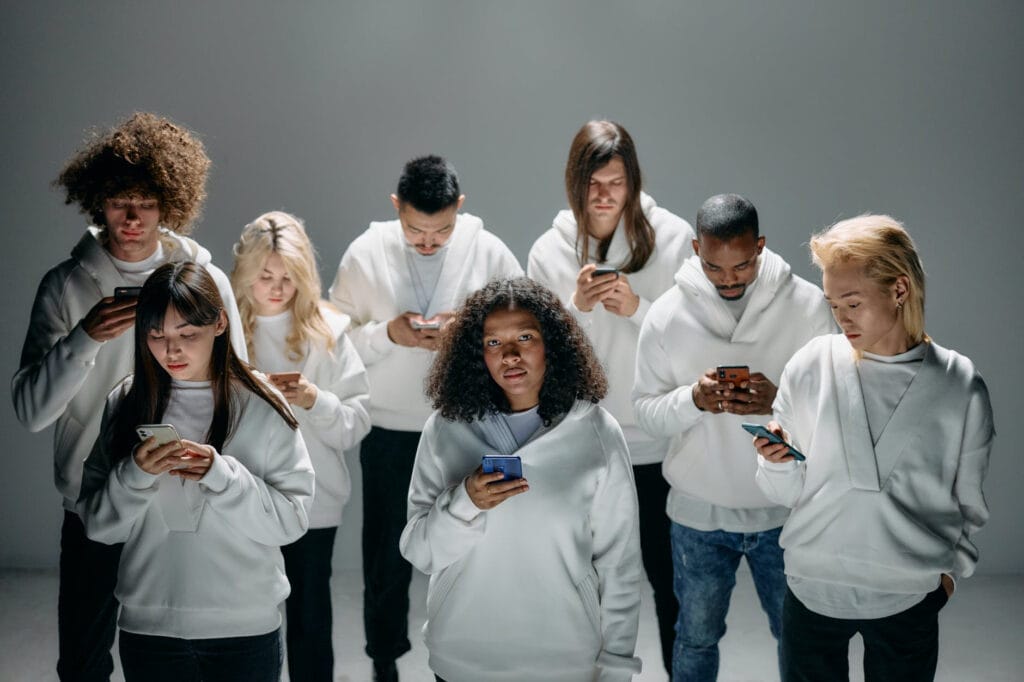
As we’ve mentioned, technology is primed to warp our minds. With dopamine kicks used to keep us ‘connected’ and follow suit.
If we choose not to have technology in our life at all we feel in today’s modern world that we are missing out, as everything is geared towards advancing human life through the advancement of technology today.
So, even writing an article about how technology can be bad for you has to come with twisted irony in how it was typed up on a laptop, prepped using technology tools, and published online for the tech world to see.
It’s simply hard to avoid if we want to survive beyond our local environment, but even if we do want to just stay local then more and more of our lives require technology use.
Cash may become redundant to digital forms. It already is barely used anymore in some countries. If you want to see your bank or get a mortgage, the computer will be at the ready to make their decision for them.
Our over reliance in technology is already in full swing, and this can negatively impact us because it means it becomes harder and harder to avoid the party you might not even want to be at.
Yet, besides its addictive traps, technology has other negative effects that we should consider before we allow it to consume us completely.
2) Technology is bad for our health (mentally and physically)

Technology itself isn’t actually bad, but the access to constant information it presents plays havoc on our minds, and can lead to health issues of not careful.
We may find we can’t pull ourselves away from the black mirror and this can lead to serious health concerns such as erratic sleeping patterns if we don’t set ourselves time limits, and stick to them.
If you watch videos on your phone into the early hours of the morning then you won’t sleep well at all, which impacts your next day. In the long term it can destroy your health, and much more as we will see soon.
It can also lead to physical ailments such as poor posture, carpel tunnel syndrome (from all the typing affecting the nerves in your wrists), and poor eyesight.
Being in your laptop or phone all the time can lead people to skip meals, and even skip showers and basic hygiene principles. Least to say this won’t do your social life any good.
Daily Action: Don’t use technology when you first wake up, or just before going to bed.
3) Technology leads to distraction and shorter attention spans (a lack of focus)
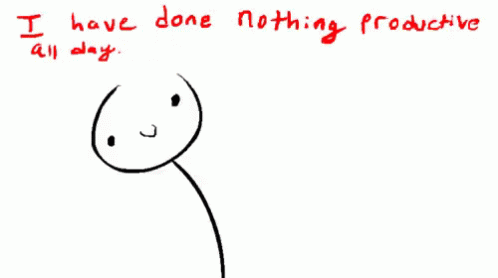
As we know, technology can become a glue stick that becomes hard to peel away from. There’s so much potential inspiration out there, but also so much clickbait and attention grabbing time wasters that can see us scroll through feeds or YouTube binge for hours.
If you have work to do and that temptation is there then you might not be able to resist, and studies suggest that even when working people tend to have consistently daily habits of quickly checking their social feed or news updates whilst at work.
The dopamine effect is clearly very strong and social media companies ensure that you are kept on their platforms with dopamine ‘kicks’.
Daily action: To break the cycle you can set screen time and website blockers like ‘cold turkey’ to ensure you focus on what needs doing.
Yet, this is only at work times. We use technology around the clock , so we need to completely step away from technology from time to time and this is why digital detox technology vacations are a good idea.
If we don’t then we may suffer more from the next point.
4) Technology can lead to isolation and loneliness, and even destroy relationships
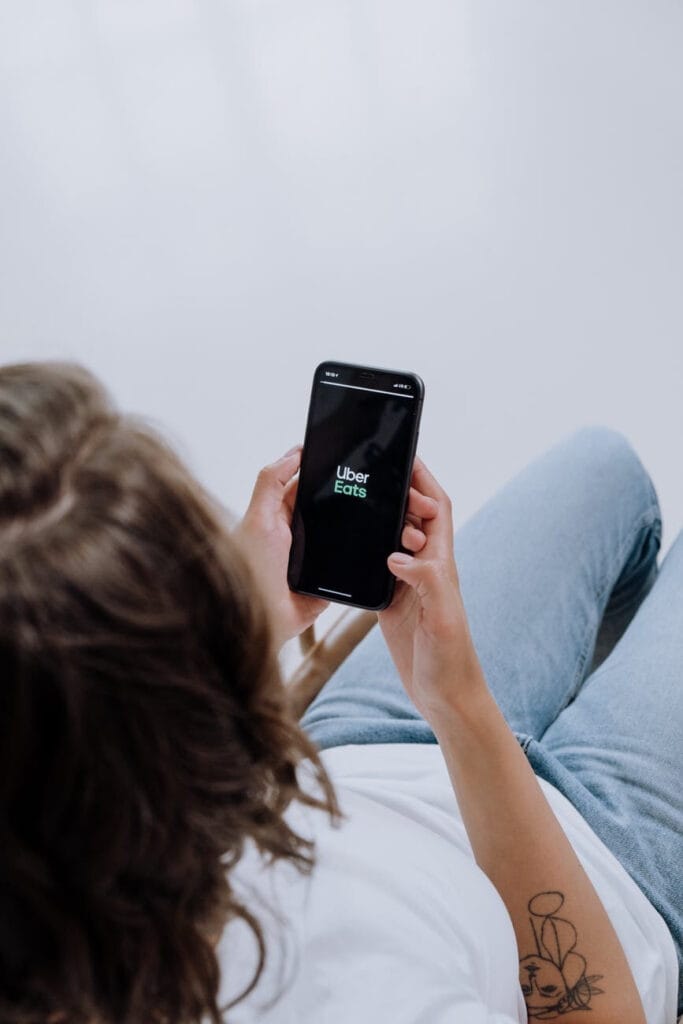
Technology allows us to work in more remote places at any time of the day. Whilst this does bring about a sense of freedom from the 9-5 office cubicles it can actually lead to even more time behind our screens than when we traditionally switch off at 5.
There’s evidence of people working longer and longer hours simply because technology opens the door towards competitors taking advantage of 24/7 hour businesses if you don’t.
We would moan when we didn’t see our parents through the week due to their office jobs and long commutes home, but now our relationships can potentially suffer even more.
When constantly plugged-in our relationship can become somewhat artificial, where we might message our loved one something instead of express it to their face.
On top of that we find that more and more jobs are seeing people become less social and more introverted. We can end up spending our entire days inside a room working whilst technology gives us the illusion that we are being social.
We may not even see our friends for weeks and weeks, maybe longer, and at first we feel our relationship is fine, but then we can find ourselves eventually drifting as we just haven’t had enough true human face-to-face time.
The times of the pandemic might have helped us connect through technology in desperate times, but we all felt how much we needed face-to-face contact after months in lockdown.
Daily action: Don’t forget what the pandemic has taught us. Our real connection with other people matters more than our growing reliance on technology. Call a friend today and find a way to meet up and enjoy your time together (if safe to do so)
5) Technology leads people into thinking fame and popularity are most important

We are in the heart of the popularity era.
Never before in human history have people wanted to be globally famous as much as today, and never before were they able to be.
It’s easy to get into the trap of thinking we have to become well known in order to survive. Businesses are all online and if you don’t find followers then someone else will, so we can easily lose track of what actually matters most whilst we seek to gain attention at all costs.
For as long as humanity existed there was a climb of status for survival. Yet even though this is hard wired within us we often forget just how little we actually have to do to survive these days compared to in the past.
Instead we chase. We think we need more that we really do, and we don’t realize all our chasing to become popular or high in status just leads us towards a road to nowhere, and a lot of wasted time and energy burnt trying to find something we already have.
To understand this further check out our (ironically) popular article on why we don’t need more comfort than we think in ‘what stepping out your comfort zone really means’.
Daily Action: Is it better to have 10 great friends or a 1000 loose friends who you don’t really know well at all. You know the answer already. Truly think about it and let this sink in.

Social media sheep syndrome. Is that a thing? Well the term we made up but it is a thing.
You can find it in every selfie-taking person out there. Now sure, we’ve all probably taken selfies before, and we may think it’s just a current popular trend to do and has no harm in it, and for the most part we’d be right.
However, there’s a deeper issue in becoming a trend follower (rather than a trend setter).
Technology seems to have a way of shutting off our brains to think for ourselves. We just find what is popular and go along with it, not just because it feels relevant to the now, but because we are actually ingrained to follow along with content that we’ve been subtly manipulated to buy into.
There’s more on this within the dark side of AI, but to in a nutshell we end up shutting our brains off A LOT when using technology.
Of course, there’s many tools out there that can aid our creativity, and for this technology is wonderful.
However, what we find is that going along with the social media popularity contest is something that is heavily ingrained in people to feel like they can fit in or stand out, and as such we don’t tend to question what we read or watch, we passively just consume and become influenced subconsciously.
We end up following something or someone not because we actually like it (or them) but because we think it will lead us to be more liked ourselves, but through doing so we end up blocking our own original thoughts and go along with influencer brigade.
This isn’t just in our personal lives as we see think like ‘influencer marketing’ becoming big business in develop us as personal brands.
This stops us from being able to separate ourselves from our online image and can lead towards another issue technology can create.
[hfe_template id=’7450′]
7) Technology takes away our privacy and human rights.
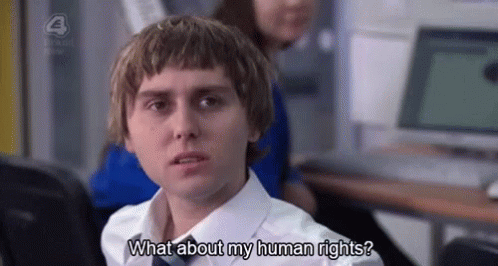
This is a big issue at the moment, and the likes of Facebook should be ashamed of themselves for being so naive in thinking that advertisers wouldn’t be trying to capitalize on platforms with such huge traffic and therefore huge amounts of data on people.
The sorry fact today is that is humans are the commodity. The products and services were the commodity in the earlier days of the internet and social media, but today we are, and in the last few years most of us have had this brought to our attention.
The power of collective ‘green’ thinking is doing its bit through social media movements to raise awareness around our human rights, but privacy issues remain on a more human level.
It’s one thing not having our data mined for the benefits of advertisers, but what about the privacy of our lives in a world where everything seems to be shared publicly, again because if you don’t emotional aren’t relevant or popular.
Well, the answer is in the question. We need to ensure we don’t share everything about ourselves online and separate our private life from it as much as we can.
However, this isn’t so easy when you have modern millennials or Gen-Z’s running around with their video cameras recording anything and everything. We will all be in someone’s home video accidentally.
There’s a big debate going on around whether we are doing enough to preserve our rights to privacy, with some arguing that privacy simply doesn’t exist anymore in a world run by technology.
This one is open to debate.
8) Technology can lead to anger, violence, stress, and a lack of empathy.
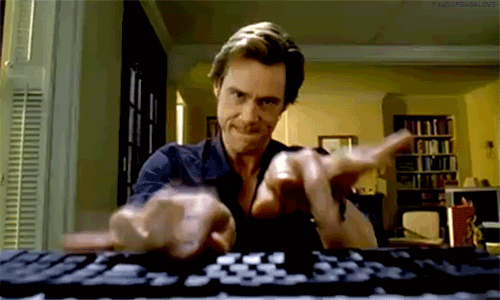
Keyboard warriors. You may have heard the term, but if not, then it’s those people who seemingly have a huge chip on their shoulder against the world and fuel their anger through technology.
So, is technology causing anger? Again, no, apart from when things take ages to buffer, but it does provide the catalyst for anger to manifest and spread behind the safety of a keyboard.
The danger in spreading hate so easily through technology, is that it might feel as though you are getting something off your chest but you are really just adding towards this negative cloud of cyberspace that finds its way to come back to you, and spread to others who don’t even want to hear it.
This is particularly difficult for celebrities to deal with such is their huge follower counts, and even those without followers (actually another cause of feeling worthless due to the modern day obsession with becoming known) end up with stress too.
Nobody wants to be targeted for a differing opinion but it happens easily on the internet. Even those offended end up becoming the offenders themselves towards others who disagree with their opinion.
It can become a hostile place that leads to a lack of empathy for each other. Just imagine for a second if people went around the street hurling abuse at each other like they do behind a keyboard, we would think the world has gone crazy.
Well, just because it’s hidden behind a screen doesn’t mean it won’t have a knock-on effect to people in their real lives too.
We have to consider the implications this has on our own children, or future children.
We are already able to access a world of knowledge and information more so than earlier generations were (leading to information overload – another one of the 10 greatest modern day dilemmas).
Children can easily develop destructive personalities if they access and become desensitized towards some very dark corridors of the internet.
9) Technology creates distrust amongst people with fake news and

To take the dark side of the web further we can see over the last decade how much the agenda of ‘fake news’ has risen.
It’s not surprising as it’s such a convenient safety net to stand behind. Don’t agree with something, just label it fake news, and refuse to believe it even if it’s true.
What this does is create egos and resistance amongst people. Technology seems to present the opportunity for egos to develop easily as it’s just to easy to believe your own (often ingrained) stuff over anyone else’s.
This goes back to why original thinking is being stifled through technology too, but it does more than that.
It creates distrust amongst people.
The distrust is only further heightened when we realize we don’t know who we are really talking to over the internet. It could be a catfish. And then you have concerns over your personal data being hacked, where technology is used to target data, but what is really happening it takes from people.
Daily action: Consider reading something completely against what you normally would, and without jumping to biased conclusions think about the other side of the coin first. May you learn something new when you look at it a different way.
10) Technology makes us lose site of reality, and our future.

It’s not just having our privacy or data taken away from us, we might have our humanness taken away from us too when we get lost in the web too much.
If we distrust what we see on the internet it can manifest to our real lives, and we tend to find solace only in the identity groups we feel a part of.
We can find this happening around the world as movements and riots have gained steam since technology and social media spread different agendas.
While identity groups are potentially dangerous if they end up being too heavily ingrained to one belief system, there’s another that we might lose sense of reality altogether.
While we become more addicted to technology we can find we don’t adapt well. We think less originally. We become easily led to movements through the bandwagon effect and think our online world matters more than our real life.
If this doesn’t seem like an issue now then consider the future. The more we become ingrained to technology the more it opens the door to our current and future generations to be less humanlike.
It’s not to say this will definitely happen, but there’s clearly going to be a rise in AI capability as time goes on, and as Elon Musk noted, we are already low-data processing robots to some degree, we are just at the early stages where we might not see the harm until it’s too late.
Daily action: Consider your working day already. How much time do you spend at a desk staring at a screen? How much time do you process data? What real value is that bringing to your life? Write down 3 things you can do today that don’t involve using technology. Then do them.
If we allow technology to run every part of our lives then we will see future generations grow up unable to function without it, if not already, and technology will only affect us more and more negatively.

If we think this is just a science fiction plot then we should really think again.
If we don’t consider the values in what makes us human then we may lose ourselves to technology entirely.
It’s clear to see the negative effects technology can have on us personally, so what can we do about it to ensure it doesn’t plague us and society moving forward?
A good start to figuring that out would be to understand how technology reliance leads to technology addiction in the first place.
How Technology Addiction Develops, And What Can We Do When We Are (Unconsciously) Addicted To Technology?
Well as users addicted to a drug, it takes a form of self-compassion and insightful understanding to find a better balanced life where we don’t become so prone to the influences and conditioning of technology in our lives.
We can take a digital detox, and we can minimize our screen time, block notifications and curb our social media use, but in a technology fueled world that is only going to increase, we need more than that if we are going to resist the shiny new gadgets that look appealing on the outside but lurk with great danger within.
‘Scientists were so preoccupied with whether they could, they forget to consider whether they should’.
The gadgets themselves aren’t even the issue, it’s us, the consumers, who are. If we elect to buy this technology then capitalist marketers will find a way to bring more to our attention.
It’s like a rolling stone too, as the more we feed our need and addiction to technology, then the more we will be fed it, and the more we will want it again, and so forth.
In fact, if we were to run an advert on this page then it’s like that the suggested ad would be about consuming another tech product, simply due to the content of this article obtaining the word technology a few times.
Technology is well drilled in us. So much so, that it is even at the heart of our more relaxing times, like when we play games and watch movies. This comfort conundrum that technology brings about means that we associate it with pleasure and therefore seek more, despite the technology only being the tool.
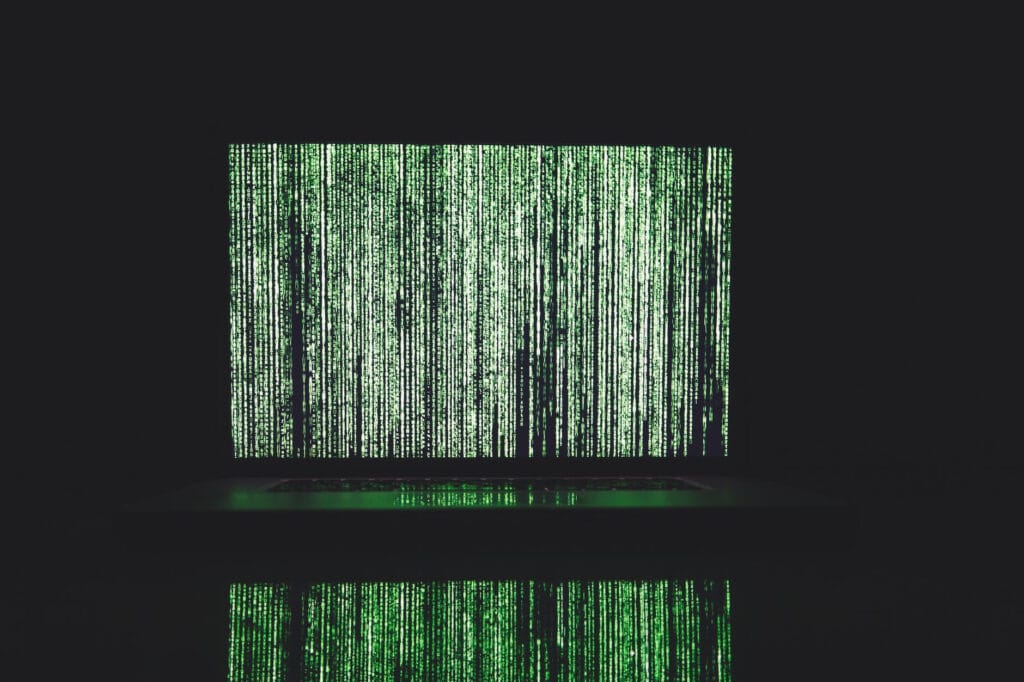
It’s the psychology that is the most damaging as we then end up associating and becoming addicted to something that feels like an extension of us rather than it being a tool for a job, and the result is we end up seeking more and more of utilizing it in patterned routines.
So, we need to learn to break the cycle of routines in order to give us the much needed digital timeouts that will help us realign with our humanness.
Of course, this is easier said than done.
There will be many deeply entrenched in technology and routines who will almost naturally (well, more ingrained to) resist.
It may sound daft, resisting our own ‘human time’, but we find our modern lifestyles, chosen or not, leads to more and more of us getting plugged-in for longer and longer, which takes its toll on our ability to get out of that same box of thinking.
If we see what a lot of jobs are about these days, we find that many of them require people to spend a majority of their hours on screen.
And even without technology many of us get stuck in routines and don’t challenge ourselves enough to break the routine.
Instead we are taught to make routines, find comfortable places, and climb ladders of specialism.
So, we need to start associating humanness with spontaneity rather than routine.
What We Need To Do (This Is Where Richly Wills Comes In)

For those of you new to the site then Richly aims to help people overcome static routines and habitual patterns of thinking, to first learn how to make a change in themselves, so they can then become changemakers who seek to make a bigger change to our world.
If you want comfort and routine then this isn’t the site for that.
Of course, we do need times of comfort and times of just relaxing, and there’s plenty of products, apps and so on that help us do so these days, but we are more interested in helping you break that comfort.
Not to be uncomfortable, but to get used to being comfortable with the uncomfortable so you can challenge biases, routines, and fears easier, and so you can then feel more empowered to truly make a difference with the time left in your life.
And it all starts with learning how you can adapt in your day.
[hfe_template id=’7432′]
It’s certainly not just Richly than can help you personally shift your mindset to be more adaptable. There’s a growing changemaker army out there, including Tristan Harris from Humane Technology, who are making a difference with their lives.
Technology is just going to be banished so it becomes important we can learn how to use humane technology to ensure humanity progresses rather than stifles under the robotic powers of technology.
The more Changemakers we have out there working on ensuring we don’t succumb to the walls of influence out there, the more chance we have in ensuring our future can deal with the changes that technology undoubtably brings to our lives.
Overcoming our technology addiction is just one of The 10 Great Modern Dilemmas Of Our Time, and you can follow along with this growing series with insight, plus tips and techniques, to address these modern dilemmas, learn why you should, and go deeper into starting your journey in becoming a Changemaker!

